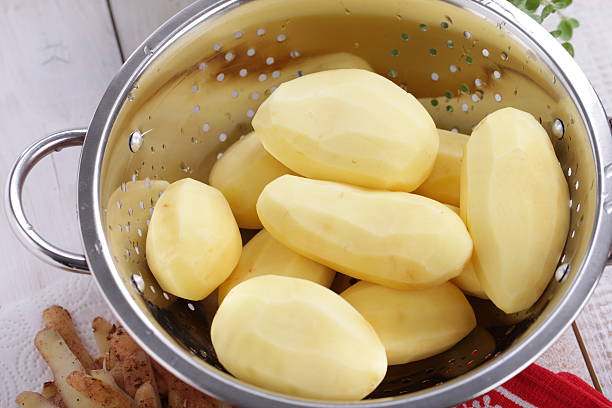
Don’t throw away the potatoes you have left! Storing them in a freezer for later use is more economical and practical. It’s much easier than you think to freeze potatoes properly; however, you must follow some easy steps. Here’s the information you must be aware of when freezing potatoes, whether they’re cubed, whole or mashed, French-fried or shredded:
Can You Freeze Potatoes?
Yes! It is possible to store potatoes in a freezer if you’ve got plenty of potatoes. However, there’s crucial to remember that you should freeze only prepared or cooked potatoes because raw potatoes are packed with plenty of water. The water is frozen and, once thawed, turns the potatoes into mush and grains.
How Long Do Potatoes Last?
It’s dependent on the way they’re stored. Uncooked potatoes can last up to two weeks at room temperature (never keep raw potatoes in the fridge as it will affect their appearance), while cooked ones last for about four days. Boiled potatoes are frozen. However, they can last for a good year.
How to Freeze Potatoes
The best method for freezing potatoes is based on the type of potato being used. Here’s how you can freeze whole potatoes, mashed, French-fried, and shredded potatoes:
Whole or Cubed
It’s not challenging to freeze cubes or whole potatoes, but you must follow easy steps.
Peel. This step isn’t necessary but beneficial because blanching is more effective without the skin. If you’re unsure whether you’ll smash your potatoes once frozen, this is an ideal time to slice the potatoes.
Blanch. Fill the pot with water and add salt to it. Place the pot on the stove and bring to the point of boiling. Once the water is boiling, you can place the potatoes in the boiling water. The time to blanch depends on how big your potato pieces are. It could be anywhere from 3 minutes for small potatoes or tiny cubes up to 10 minutes for complete russets. Remove the potatoes from the boiling water and place them in a freezing tub to stop cooking.
Dry. Transfer the potatoes into an empty colander and drain them after completely cooling. After draining, spread them in one layer on the kitchen towel. Then, pat them with paper towels to soak up the excess water.
Flash freeze. Place the potatoes in one layer on a cookie sheet lined with. Then, freeze for at least four hours or until the night.
Freeze. Once the potatoes have been frozen, transfer them into freezer-safe storage bags tagged by the year of their birth.
French Fries or Potato Wedges
If your French fries aren’t cooked, you’ll have to blanch them before taking them to a freezer (misdirections in the previous section). If they’re cooked, it’s slightly more manageable.
Initial freeze. Place cooked (and cooling!) fries on a parchment-lined baking tray. Set aside for at most four hours or overnight.
2nd freeze. After the fries are thawed, you can transfer them to freezer-safe storage bags labeled on the back on the day of purchase.
Hash Browns
This scenario will be contingent on the state of your potatoes. Are they cooked or not? If they’re not cooked, shave the potatoes using the big part of the cheese grated before making them blanch (since the potato is already shredded, it’s only necessary to blanch them for a few seconds). The hash browns that you cook can be frozen in the same manner as French fries.
The first freeze. Scoop cooked (and cool!) browns of hash onto an unlined baking sheet. Set aside for at most four hours or even overnight.
The second freeze. Once the hash browns are frozen, transfer them into freezer-safe storage bags marked in the order of date.
Mashed
Mashed potatoes can be more effective than other varieties of potatoes due to the causes of cream and butter helping maintain their texture. If you’re planning on freezing those potatoes, you’re planning to smash them; this isn’t the best time to sacrifice the quality ingredients.
Cool. Make sure that the potatoes are cool before beginning your freezing.
Scoop out one cup of portions onto a parchment-lined baking tray.
The first freeze. Freeze for at least 4 hours or for up to a night.
The second freeze. Once the potatoes have been frozen, transfer them into freezer-safe storage bags marked as when they were frozen.
